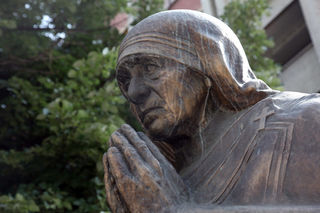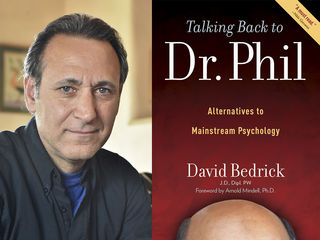Spirituality
Mother Teresa: In The Shadow of a Saint
Light and Shadow in Spiritual and Psychological Work
Posted September 5, 2016
Pope Francis has officially declared Mother Teresa a saint. We knew her for the profound expression of her faith to help “the poorest of the poor.” We knew her as a woman of God, a woman devoted to and in a deep abiding relationship with Jesus Christ, the woman who declared that her heart belonged "entirely to the Heart of Jesus." Such devotion, such service, such love!
I remember watching the documentary, Mother Teresa (1986), where one woman said to her, "Mother, it is easy for you to follow God as you do; you don’t have a family, a regular life." She held up her ring, the symbol of her marriage to Jesus, and said, “And he can be very difficult.”

But her story is not without twists and turns too seldom discussed—twists that have led some to question her faith, but have led me to see her canonization as beyond reproach.
The twists were revealed in letters published posthumously, Come Be My Light (letters Mother Teresa hoped would be burned, never to be seen). For example, a few months before she revealed her conversation with Jesus, she said in a letter to her friend, Rev. Michael van der Peet:
The editor of her posthumous autobiography, the Rev. Brian Kolodiejchuk, wrote that for the last 50 years of her life, Mother Teresa felt no sense of God at all, “neither in her heart or in the eucharist.” Instead she spoke of the “dryness,” “darkness,” “loneliness” and “torture."
Mother Teresa wrote during this time:
But, while some take this as a giant red flag, a big question mark on this woman of God’s saintliness, for me it only adds confidence to my resolve. Mother Teresa, like all of us, had a shadow. And her shadow was as big as the light she was moved by—the light of Jesus. Her agony reminds me of the words of another great saint, the 15th century Indian mystic, Kabir, who understood the pain in Mother Teresa's longing:
In fact, Mother Teresa actually acknowledged the value of her pain—the absence of Jesus, her beloved. She humbly wrote:
Clearly her longing was great, and now the model she offers us is also great—great in its wholeness, in its light and shadow. It is the powerful, terrible, and magnificent wholeness of her life that, for me, moves me onto bended knee and causes my lips to utter, “Mother, I see you. You are a saint.”
Many of us have a spiritual life. We hope and pray for light, for love. We meditate for clarity, for insights—shreds and crumbs of enlightenment. And many of us who practice the art and science of psychology spread our messages of forgiveness and positivity. But in our efforts to uplift, we may lose sight of the fall, the descent, the shadow.
Perhaps we can take heart, for ourselves and our clients, in the twists and turns of a true woman of God, whose tale of spiritual flowering was not only that of facing upward, into the sun, but also hanging downward, into her own heart’s agony. Perhaps then we can teach our clients to do one thing that even Mother Teresa could not: to live our pain, suffering, and longing openly, without shame.
**************************************************
Sign up for David's classes on shame here!
**************************************************

Join David’s mailing list here. Visit his website here. Schedule a one-on-one counseling session: dbedrickspeak@mac.com
You might also like: Maya Angelou in Memoriam: An American Elder; The Roots of Shame
David is the author of Talking Back to Dr. Phil: Alternatives to Mainstream Psychology. Click here to purchase a signed copy of his book.
Follow David on Facebook and Twitter. See his posts here. Author photo credit: Baron Wolman




